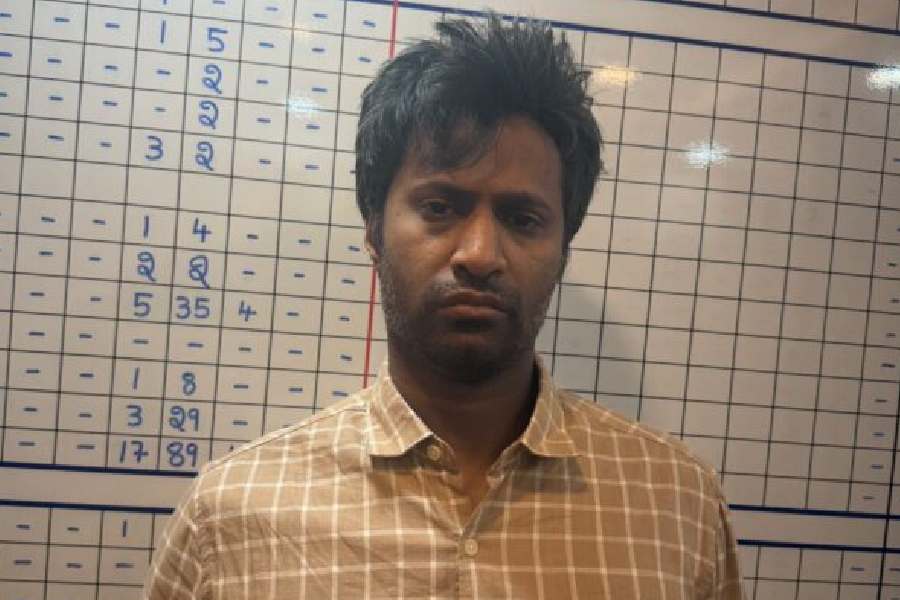|
|
| Magical island |
There is no reason why Sri Lanka and India should not be the best of neighbours. A majority of Sri Lankans trace their ancestry to Aryan Indians. A minority, living in the north and the east coast, are Dravidian. The majority are Buddhist and look upon India as the country that gave them their faith. The Tamilian minority are Hindus. The majority speak Sinhalese; the minority speak Tamil. There is also a sprinkling of Muslims of either Moorish, Tamilian or Keralite descent, all of whom speak Tamil. It was a reasonably prosperous little island earning much of its revenue from exporting tea and remittance from workers (mainly women) in Middle Eastern Arab countries. Sri Lankans have no real grievances against India. Nevertheless, every time we have tried to help them, we have burnt our fingers. Rajiv Gandhi was assaulted while inspecting the guard of honour, and later murdered by Sri Lankan Tamils. We sent a peace-keeping force as requested by the Sri Lankan government. It had to be quickly withdrawn. Our prime minister had to drop the idea of visiting Colombo. We are also at the receiving end of the wrath of the LTTE — the militant Tamil terrorist group now with an airforce, and navy of its own. Our own Tamil leaders — Jayalalithaa, Karunanidhi, and Vaiko have different views on demands of eelam (independence) made by Tamilian Sri Lankans. Most of the Indians don’t know what to make of the situation except feel unhappy about it.
We owe it to ourselves to know a lot more about Sri Lanka than we do. A good start would be to read Mohan K. Tikku’s Sri Lanka: A Land in Search of Itself. It is a kind of easy-read primer which gives the background to the ethnic, religious, and linguistic divide which makes Sri Lanka an enigma.
Matters of life and death
The Buddha believed that the world is full of sorrow (dukh). However, his closest disciple was Ananda, meaning bliss or happiness. His vice-regent on earth today, the Dalai Lama, is about the most cheerful man I have met: he breaks out into guffaws of laughter at the end of every second sentence he speaks.
Most poets, particularly of Urdu, constantly moaned about dard (pain) and gham (sorrow). The greatest of them, Asadullah Khan Ghalib (d.1869), held sorrowing and crying as his birthright and death to be the only end to sorrow. He wrote: “Dil he to hai na sang-o-khisht, dard sey bhar na aaye kyon? (It is only my heart, not something made of brick or stone, you see, why should it not be full of sorrow?) Roengey hum hazaar baar, koee hamein sataaey kyon? (I will cry a thousand times, why should anyone pester me?)” He went on to assert further that sorrow was an integral part of our lives and there was no escape from it besides death. “Qaid-I-hayaat-o-band-e-gham, asl mein dono ek hain (The prison of life and sorrow’s chain, are in fact one and the same); Maut say pehley aadmee gham say nijaat paaye kyon? (How then can anyone find release from pain till his days are done?)
Nevertheless, every evening Mirza Ghalib took his bath, got into fresh clothes, took out his bottle of Scotch whiskey and surahi (pitcher) of cold water and enjoyed his sundowners — not to drown his sorrows but to write immortal verse.
Sorrow is indeed integral to life. Everyone of us grieves when our, kin and dear friends leave. Or when one suffers setback in one’s business or is stricken by ill-health. But it is a negative emotion and must be overcome by self-will. You must never let it make you a chronic depressive and make others around you depressed. Cheerfulness is a positive emotion; one who has a cheerful disposition spreads cheer in the company one keeps and is then much sought after. The most important requirements for such a nature are good health and a reasonably good bank balance created by honest endeavour. Neither are too difficult to achieve if one puts one’s mind to them. Make your life worth living and spread goodwill around you.
Sharing a secret
They say, “Modi is bigger than
Modi,”
My critics don’t look beyond the
wall
Vajpayee, Advani and Rajnath
Singh
I am the biggest of them all!
After the Godhra riots, flexible Atal
Bihari
Looked upon me with a frown
He wanted me to quit CM’s post
But I flatly refused to step down.
Advani is highly obliged to me
With affection me he has to treat
He seeks election from my state
Where else can he win a seat?
I am not bigger than BJP
This is what I outwardly say
Inwardly I know and my party
knows
It is Modi, Modi all the way!
(Contributed by G. C. Bhandari, Meerut)












